Are you searching for the best espresso powder substitute for your next decadent chocolate creation or coffee flavored dessert? Whether you've simply run out of espresso powder or are in search of a caffeine-free option, this comprehensive baking guide provides 13 alternatives that you can substitute for espresso powder, infusing your recipes with the same rich, robust coffee flavor.
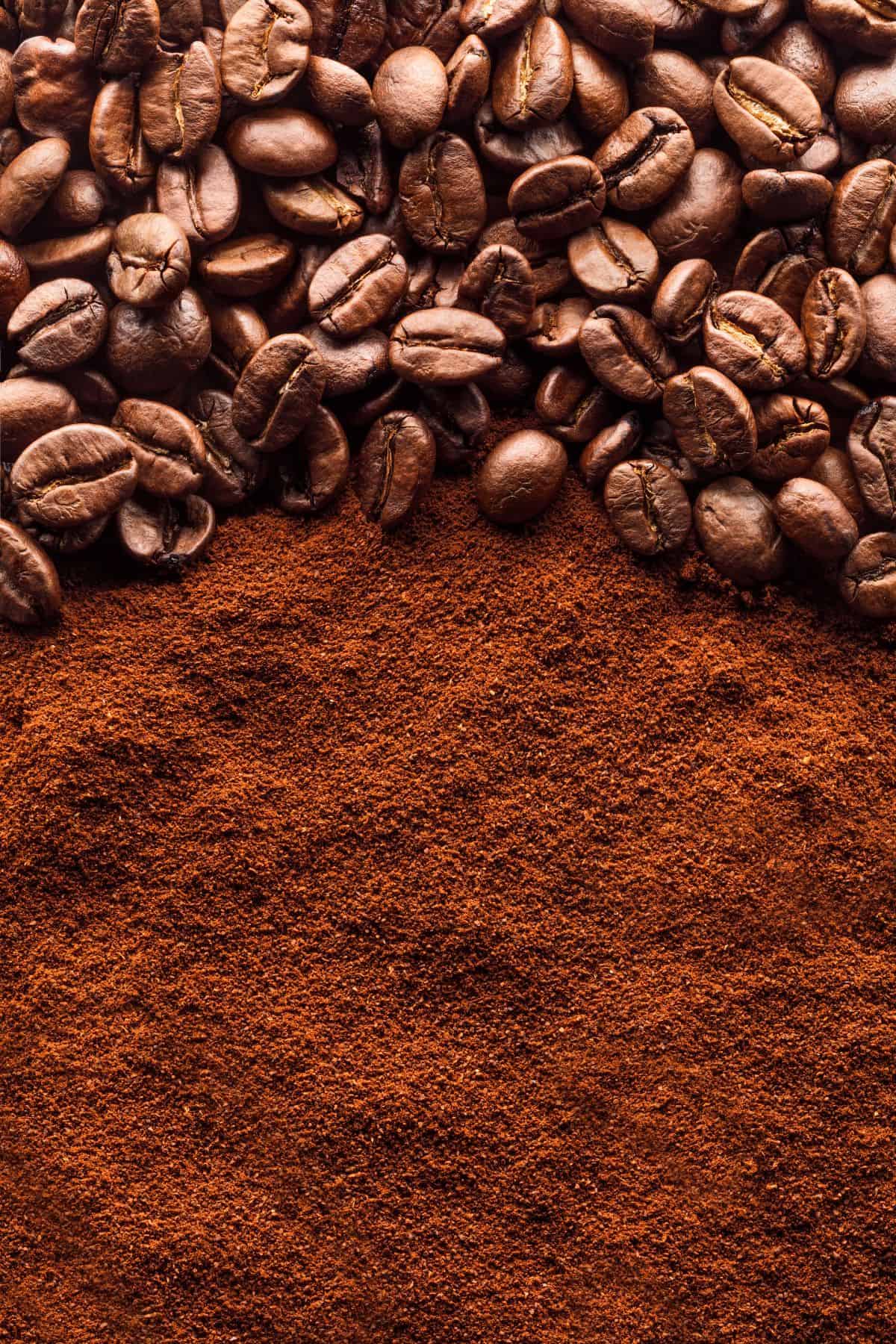
Jump to:
- What is espresso powder?
- Is espresso powder the same as instant coffee?
- Considerations when replacing espresso powder
- What is the best espresso powder substitute?
- 1. Caffeine Espresso Powder Substitutes
- 1.1. Espresso grounds
- 1.2. Brewed espresso
- 1.3. Finely ground coffee beans
- 1.4. Brewed coffee
- 1.5. Instant coffee
- 1.6. Natural cocoa powder
- 1.7. Dutch processed cocoa powder
- 1.8. Coffee extract
- 1.9. Coffee liqueur
- 2. Caffeine-free Espresso Powder Substitutes
- 2.1. Chicory coffee
- 2.2. Carob powder
- 2.3. Postum
- 2.4. Chaga powder
- Espresso Powder Substitutes FAQs
- Conclusions
- More Substitute Guides
- The BEST Espresso Powder Substitute
What is espresso powder?
Also known as instant espresso, espresso powder comes from darkly roasted espresso beans that undergo a process of grinding, brewing, drying, and a subsequent fine grinding process, which creates a concentrated powder that easily dissolves in liquid.
This unique process ensures that the powder has a distinct, strong coffee flavor, ideal for enhancing the taste of various recipes. Bakers commonly use it to enhance the flavor of coffee desserts as well as chocolate desserts such as brownies and cakes with a deep, rich coffee flavor without the added texture of coffee grinds.
You’ll also find espresso powder used in different savory recipes like marinades and sauces to add complexity and depth.
Is espresso powder the same as instant coffee?
Both espresso powder and instant coffee come from coffee beans, but they differ significantly in their intensity and use.
Instant coffee is a less concentrated version, made from various coffee beans. It involves brewing coffee, drying it, and then grinding it into a coarse powder that readily dissolves in water. The primary purpose of instant coffee is to be drunk.
In contrast, espresso powder is considerably more concentrated and serves primarily as a flavor enhancer in recipes rather than as a beverage. Its fine texture and intense flavor set it apart from instant coffee powder.
Considerations when replacing espresso powder
When trying to figure out what can replace espresso powder it's important to consider the role it plays in your recipe. Is it for flavor, for a caffeine boost, or both?
The texture and moisture content of the substitute also matter, especially in baking. Consider the flavor compatibility with other ingredients and the desired end result. It's often a balancing act between taste, texture, and the specific function of espresso powder in the recipe.
The caffeine content might also be a concern for some people because espresso is known for its high caffeine content. In fact, if you're wondering 'can you omit espresso powder', the answer is yes! Several alternative options do not contain any caffeine or coffee flavor.
What is the best espresso powder substitute?
So, what is a good substitute for espresso powder? The truth is that there is no single "best" substitute.
Instead, this baking guide shares a variety of substitutes to choose from. It also covers each one’s role in recipes, as well as guidelines on how to effectively implement them just like using instant espresso. While some alternatives offer a closer flavor match, others shine in different departments like texture or caffeine content. But don´t worry, you don’t need to learn how to make espresso powder!
Whether you're seeking a similar flavor, a caffeine-free option, or just an emergency replacement, it's all about selecting the right instant espresso powder substitute for your specific needs. Understanding the nuances of each one will help you make the best choice for your specific recipe, whether it's a classic chocolate cake or a coffee-flavored sauce.
1. Caffeine Espresso Powder Substitutes
1.1. Espresso grounds
What can you substitute for espresso powder? Espresso grounds! They are essentially just espresso beans in a coarser, more textured form, making them an ideal choice for any recipe.
However, the coarser texture can affect some dessert recipes, so you should always grind the espresso grounds into a finer consistency. This step is particularly crucial to prevent adding a gritty texture to frosting or glaze.
It's important to note that ground espresso beans pack a stronger flavor and higher caffeine content. This is because unlike espresso powder the grounds haven't been brewed yet, retaining more of the coffee's natural oils and flavors. Therefore, when substituting, it's best to use them in slightly smaller quantities.
In a pinch, try this one when making my espresso brownies!

How to use it:
First, grind the espresso grounds into a fine powder. Then use about ½ to ¾ the amount of espresso powder that your recipe calls for. Remember you can always add more if you like and keep any extra grounds in an airtight container in your pantry for later use.
1.2. Brewed espresso
Brewed espresso offers a direct approach as a substitute for espresso powder. Made from the same beans, it provides an authentic espresso flavor, making it an ideal choice for recipes that require a deep, concentrated coffee taste.
However, due to its liquid form, it's best in recipes where you can swap it out for one of the liquid ingredients or where adding moisture won't impact the final outcome.
This substitution is ideal in my chocolate cake or coffee tart recipe! It also works in muffins, cupcakes, cookies, and sauces.
How to use it:
Replace an equivalent amount of liquid in your recipe (such as water, or milk) with brewed espresso.
1.3. Finely ground coffee beans
Finely ground coffee beans can be a convenient and effective espresso powder substitute. While they may not have the same intensity, their availability and versatility make them a popular choice. The key is to select a dark roast to achieve a flavor that is closest to that of espresso.
This alternative shines in baked goods like cakes or brownies, where the coffee's rich flavor complements the chocolate. It's also great in rubs for meats or in homemade barbecue sauces, where a subtler coffee flavor is desired.
Note, the fine grinding of the beans is crucial to avoid adding a coarse texture to your baked goods.
How to use it:
Use finely ground coffee beans in the same quantity as espresso powder. If the coffee beans are not already finely ground, give them an extra grind to achieve a powdered texture. A spice grinder is a perfect tool for this.
1.4. Brewed coffee
Can you substitute regular coffee for espresso? Why yes you can! Regular brewed coffee, especially a strong brew, can be a good alternative to espresso powder. It works particularly well in recipes where liquid can be swapped out or the ratios can be adjusted.
Brewed coffee is best used in cakes, muffins, and cupcakes where the coffee flavor is meant to be a background note rather than the main attraction. For example, if you’re making traditional tiramisu or even my tiramisu cupcakes and don’t have any espresso on hand.

How to use it:
When using this option as an espresso powder substitute, replace the liquid in the recipe (such as water or milk) with an equal amount of brewed coffee. Just keep in mind that for the most intense flavor, you need to brew very strong coffee.
1.5. Instant coffee
Wondering, if can you substitute instant coffee for espresso powder in baking? Yes, you can! While it offers a milder coffee flavor, instant coffee powder is a practical substitute that is widely accessible and easy to use.
The versatility of instant coffee allows you to adjust the intensity of the coffee flavor. You can use it in powdered form or dissolve it in a small amount of hot water to create a concentrated coffee solution. Its granulated form easily dissolves and blends perfectly into batters and frostings.
It’s perfect in both baking and cooking recipes, such as mocha-flavored icings, cookies like my tiramisu cookies or coffee cookies, or savory dishes like coffee-rubbed steak.
How to use it:
To use instant coffee as an espresso powder substitute, use it in a slightly higher quantity to match the robust flavor of espresso. For example, if a recipe calls for one teaspoon of espresso powder, consider using one and a half teaspoons of instant coffee.
1.6. Natural cocoa powder
Made from roasted cacao beans free of any alkalizing agents, natural cocoa powder provides a rich, slightly acidic chocolate flavor that can mimic the bitterness of espresso powder. While it contains much less caffeine than espresso powder, it does have a significant amount therefore listed as caffeine espresso powder sub.
It works best in chocolate desserts where the depth and complexity of the natural cocoa can enhance the overall flavor. However, it’s important to consider your recipe's other acidic components, as natural cocoa powder can interact with baking soda and affect the rise of baked goods.
How to use it:
To substitute instant espresso powder, use an equal amount of natural cocoa powder. Just remember it won't impart a coffee flavor.
1.7. Dutch processed cocoa powder
Unlike natural cocoa powder, Dutch-processed cocoa powder is treated with an alkalizing agent. Its reduced acidity and darker color make it an excellent espresso powder substitute for recipes that call for a rich chocolate flavor without any added bitterness.
Dutch-processed cocoa powder tends to blend seamlessly into most recipes. It's an excellent choice if you want to avoid adding coffee flavor entirely but still achieve a rich depth in chocolate desserts.
But keep in mind that due to its alkalized nature, Dutch processed cocoa powder does not react with leavening agents, so it's best in baked goods that call for baking powder such as cake recipes and cupcake recipes.

How to use it:
Use equal parts Dutch-processed cocoa powder to espresso powder.
1.8. Coffee extract
With its highly concentrated coffee flavor, coffee extract stands out as a robust and intense espresso powder substitute for baking. It captures the rich and full-bodied flavor of espresso in just a splash.
However, its concentrated nature means that just a little bit can greatly impact the overall flavor. Coffee extract is a great option for mousses, glazes, frostings, cakes, and even ice cream recipes like my coffee caramel ice cream bars that require a deep coffee taste without altering the balance of moisture in the recipe.
How to use it:
For substituting coffee extract in place of instant espresso powder, moderation is key due to its potency. Start with about half the amount of espresso powder that your recipe requires, and gradually increase to suit your taste.
1.9. Coffee liqueur
With its combination of coffee richness and alcoholic sweetness, coffee liqueur is a unique alternative to espresso powder. It can add a luxurious and indulgent element to a variety of recipes with both the warmth of alcohol and the familiar comfort of coffee.
Coffee liqueur excels in dessert recipes like rich chocolate cakes, mousse, or indulgent truffles. It also adds complexity to savory recipes such as glazes for meats or in rich stews.
How to use it:
Substitute it for espresso powder in equal parts, but be mindful of the overall sweetness and liquid content of your recipe.
2. Caffeine-free Espresso Powder Substitutes
2.1. Chicory coffee
Chicory coffee, made from the roasted roots of the chicory plant, is a unique and flavorful substitute for instant espresso powder. It emulates the earthy, slightly bitter deep-roasted taste of coffee, but without the caffeine, making it an excellent choice for those seeking a caffeine-free alternative.
It’s particularly effective in chocolate desserts like cakes, cookies, and my coffee brownie recipe, where it complements the chocolate flavor while adding its own distinctive flavor. It can also be a great addition to savory dishes, such as stews or rubs for meats.
How to use it:
Use an equal amount of chicory coffee to substitute espresso powder.
2.2. Carob powder
Derived from the dried pods of the carob tree, carob powder serves as a naturally sweet and caffeine-free substitute. It has a unique flavor that is mildly nutty and sweet, with a chocolate-like undertone. It works well as an espresso powder for baking substitute in recipes where a subtle sweetness and a hint of cocoa flavor are desired.
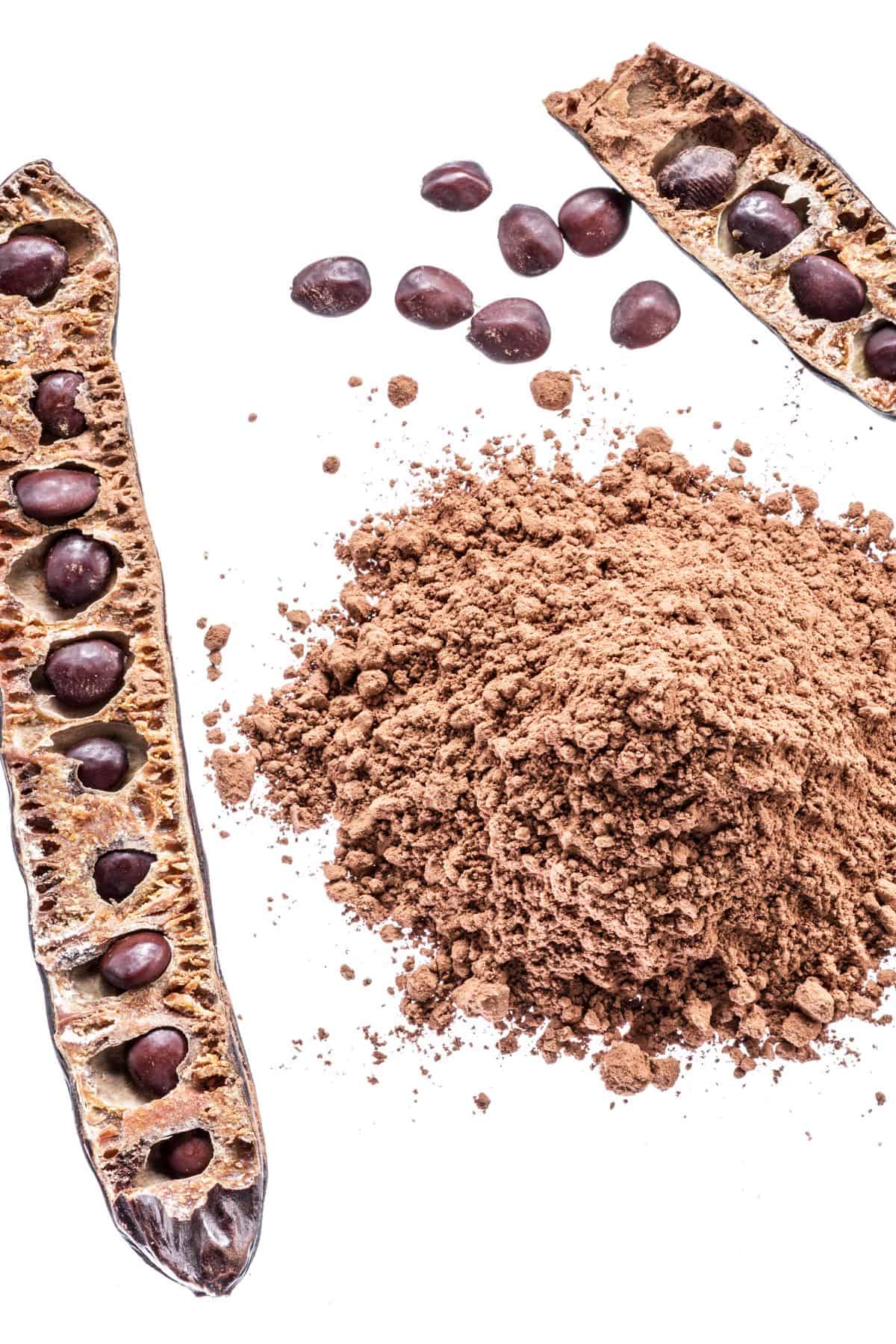
How to use it:
Substitute equal amounts of carob powder for espresso powder.
2.3. Postum
Postum is a caffeine-free, wheat-bran-based beverage with a molasses kick. It offers a milder, comforting coffee-like flavor, making it a suitable espresso powder substitute for those who prefer a less intense coffee taste or are avoiding caffeine.
It is a good choice for coffee-flavored desserts, like tiramisu or coffee cake, where a subtle coffee note is desired without overpowering the other ingredients. Postum can also add a unique dimension to savory dishes like stews or chili.
How to use it:
You can use postum in the same amount as espresso powder. However, it’s important to consider its slightly different flavor profile and adjust the quantities as needed to achieve the desired taste.
2.4. Chaga powder
Is there a substitute for espresso powder that is all-natural? Meet chaga powder! It comes from a fungus that grows on birch trees and is considered a health-conscious alternative to espresso powder that can potentially bring a range of antioxidants and nutrients to your recipes.
Chaga powder has a distinctive flavor profile, featuring slightly bitter notes with hints of vanilla, and a subtle resemblance to coffee. However, while you can incorporate it into any recipe, it makes baked goods taste earthy. It works well in recipes like my no-bake cookie dough bites or edible brownie batter.
How to use it:
Use chaga powder in the same quantities as espresso powder.
Espresso Powder Substitutes FAQs
Using leftover brewed coffee grounds in place of espresso powder is not recommended as most of the flavor has already been extracted. They can also introduce an unwanted gritty texture. A better alternative is to use finely ground coffee beans.
No, espresso powder is made from darkly roasted coffee beans that are brewed, dried, and ground into a fine powder. On the other hand, ground coffee is simply coffee beans that have been ground but not yet brewed. Espresso powder is much more concentrated and has a stronger flavor.
There are several alternatives depending on your recipe's requirements and desired flavor profile. Espresso grounds and finely ground coffee beans are a close substitute for espresso powder in baking recipes. Instant coffee, though less concentrated, can also suffice.
For recipes where additional liquid is manageable, brewed espresso or strong coffee can be an excellent alternative. In chocolate-based recipes, natural or Dutch-processed cocoa powder can mimic the depth of flavor. For a caffeine-free option, chicory coffee is a viable espresso powder substitute.
Conclusions
Can espresso powder be substituted? Absolutely! In fact, whether you're an experienced baker or just starting out, you'll never have to ask yourself again, what can I use as a substitute for espresso powder?
As we've learned, there are several alternatives to choose from when you don't have it on hand or need a caffeine-free option. Just remember that when selecting a substitute, it's important to consider its role in the recipe to achieve the best results. The flavor intensity, moisture content, and texture of the substitute must align with the demands of your recipe.
But this comprehensive baking guide takes out all the guesswork for you! From instant coffee or brewed coffee to various forms of cocoa powder and chicory coffee, you now have a variety of substitutes for espresso powder to choose from. So, have fun exploring these alternatives and discovering your favorite flavor combinations.
More Substitute Guides

The BEST Espresso Powder Substitute
Overall Best Option
- ½ tablespoon Espresso grounds fresh not brewed
Best Caffeine Espresso Powder Substitute
- 1 tablespoon Finely ground coffee beans
Best Caffeine-free Espresso Powder Substitute
- 1 tablespoon Chicory coffee
Instructions
- Replace every 1 tablespoon of instant espresso powder with one of the substitutes.
Note
- Brewed espresso
- Brewed coffee
- Instant coffee
- Natural cocoa powder
- Dutch-processed cocoa powder
- Coffee extract
- Coffee liqueur
- Carob powder
- Postum
- Chaga powder

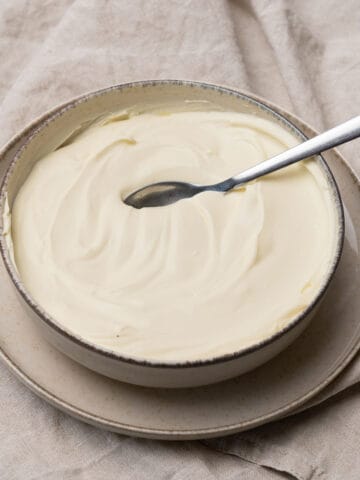

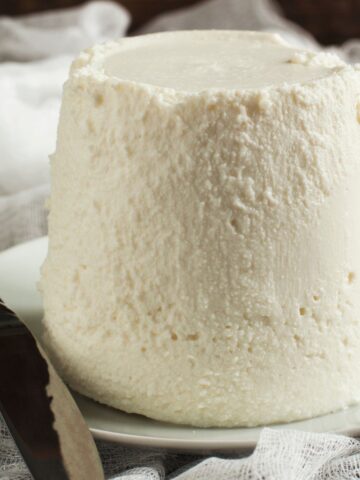
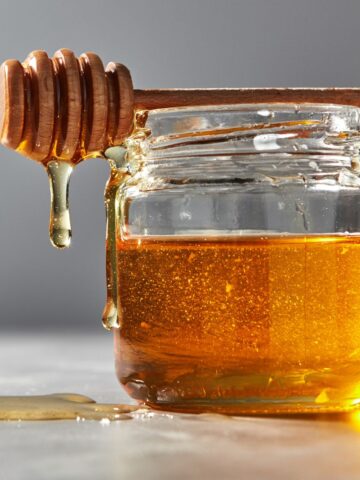

Leave a Reply